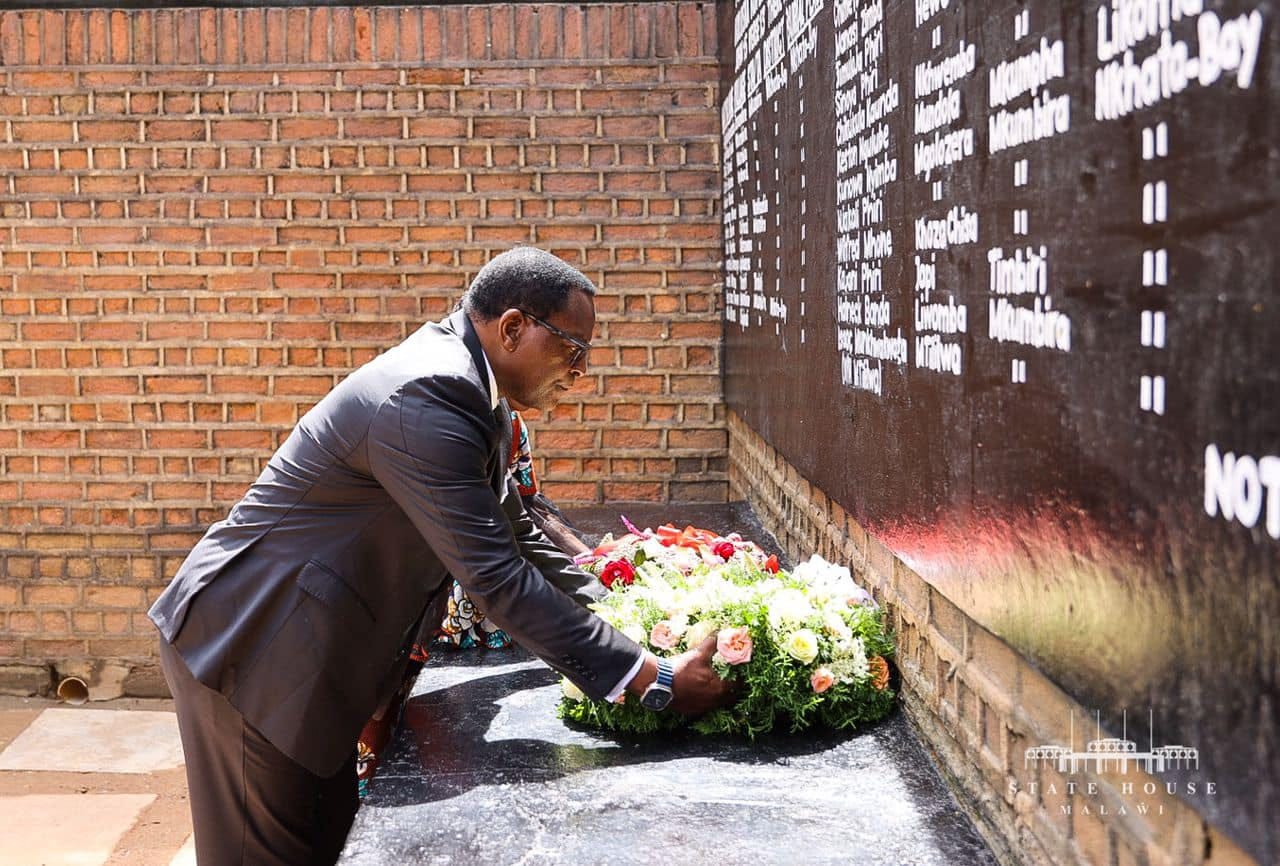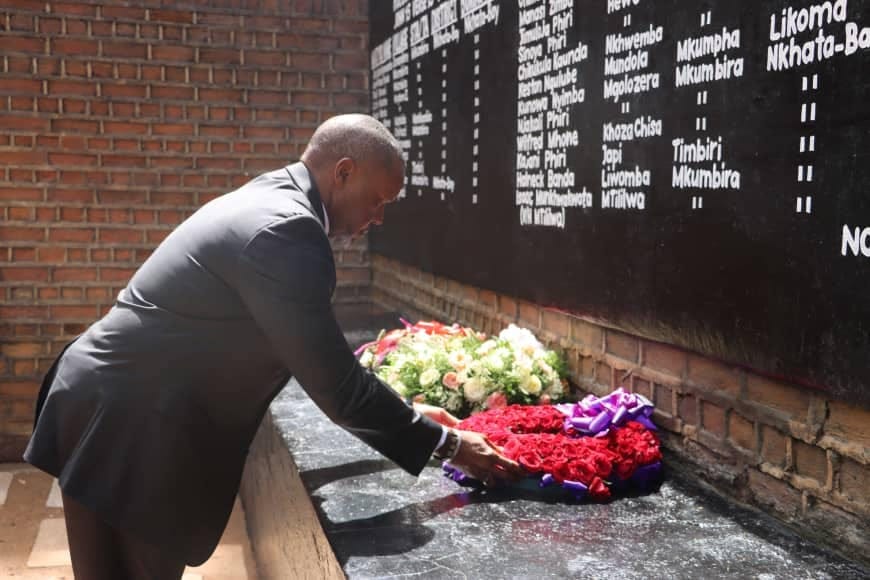Chakwera Leads Martyrs' Day Events in Nkhata Bay
The annual event honours 31 martyrs killed on March 3, 1959 while demonstrating against colonial injustices under British rule.
NKHATA BAY, Malawi - President Lazarus Chakwera led the nation Sunday commemorating Martyrs' Day, laying a wreath and attending a worship service alongside the first lady in Nkhata Bay district, write Tionge Hara and Winston Mwale.
Chakwera laid a memorial wreath and observed a moment of silence for the martyrs during the solemn commemorations.
The annual event honors 31 martyrs killed on March 3, 1959 while demonstrating against colonial injustices under British rule.
Chakwera said their sacrifice 65 years ago paved the way for Malawi's emancipation and independence.
“May the freedoms yielded from the struggle for independence 65 years ago become building blocks in achieving a better and new Malawi,” said Chakwera.
He also ordered the Justice Ministry to provide funds consoling martyrs' bereaved families.
Chakwera urged Malawians to use their hard-won liberties to unify, develop the country and safeguard its interests. He cautioned against criticizing the nation alongside foreigners.
Vice President Saulos Chilima joined President Lazarus McCarthy Chakwera in commemorating Martyrs' Day in Nkhata Bay district on March 3rd.
“As we all know, the day - 3rd March - was set aside to honour the souls of our forefathers who paid the ultimate price of blood to secure the freedom we are enjoying today,” said Chilima on his Facebook page.
At the ceremony, Senior Chief Mkumbira of Nkhata Bay asked Chakwera to address water shortages and lack of medicines at Nkhata Bay District Hospital.
Mkumbira said insufficient water forces patient guardians to fetch their own water.
He also said essential drug shortages require patients to buy from private pharmacies.
Mkumbira said the water shortage raises concerns about healthcare delivery at the hospital. The lack of medicines places an added financial burden on patients' families.
Malawi's Martyrs' Day honours those killed on March 3, 1959 while demonstrating against injustices under the British regime in what was then Nyasaland.





